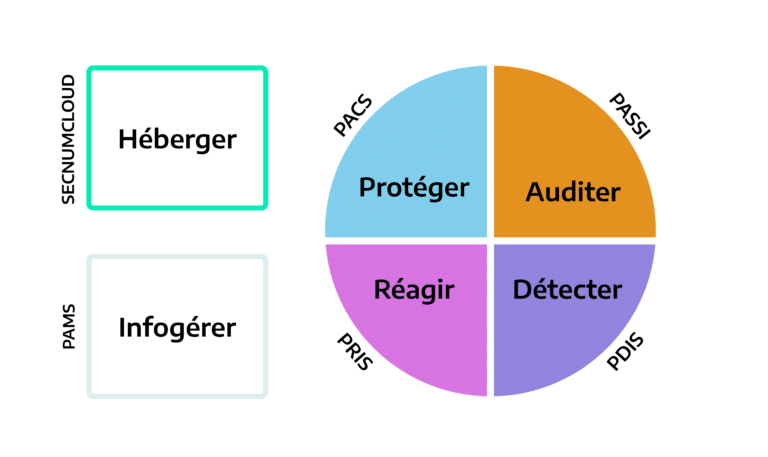Table des matières
ToggleThe fundamentals of anti-aircraft defense systems
Anti-aircraft defense systems play a vital role in national security, providing the capability to protect a territory against aerial threats such as missiles, enemy aircraft, or drones. To become an expert in this field, a deep understanding of essential components is paramount.

Key elements of anti-aircraft defense systems
Anti-aircraft defense systems mainly consist of several interconnected elements:
- Detection radar: This system detects and tracks aerial targets, allowing operators to anticipate and respond to a threat. Modern radars adopt advanced technologies for better accuracy.
- Interceptors: Interceptors, whether ground or air-based, are designed to engage and destroy identified threats. Recent models include missiles developed by MBDA and Thales.
- Fire control: This system coordinates all engagement operations. It interprets information from radars and determines the best intervention strategy.
- Logistical platforms: Maintenance and supply of weapons are essential to ensure the operational efficiency of defense systems.
Contemporary challenges of anti-aircraft defense systems
Experts in anti-aircraft defense systems must also consider the challenges posed by the evolution of threats. With the emergence of drones and stealth technologies, detection and engagement capabilities must constantly adapt. For example, companies like Safran and Airbus focus on innovative solutions to address these challenges.
| Type of threat | Characteristics | Possible solutions |
|---|---|---|
| Drones | Speed, use of low-cost technologies | Development of electronic neutralization systems |
| Ballistic missiles | High speed, difficult to detect | Integration of advanced warning systems |
| Stealth aircraft | Special design to evade radars | Infrared detection technologies |
An excellent understanding of current challenges and emerging technologies is crucial for navigating the field of anti-aircraft defense systems. Whether by joining companies like Dassault Aviation or collaborating with government agencies, expertise will be the key to success.
Training and necessary skills
To aspire to a career as an expert in anti-aircraft defense systems, a combination of academic training and practical skills is required. The courses offered by various institutions are adapted to meet these growing demands.

Recommended academic pathways
Several master’s programs are well suited for specializing in this field:
- Master in Global Security and Defense
- Specialized Master’s in Cybersecurity
- Master in Engineering and Management in Applied Global Security, a program offered by UTT
Technical skills and soft skills
Candidates must combine technical skills and personal qualities to thrive in this field. Here are some key skills to develop:
- Problem analysis and resolution: Ability to understand complex systems and propose suitable solutions.
- Software development: Knowledge in programming and data analysis.
- Teamwork: Collaboration with professionals from diverse backgrounds, such as engineers and analysts.
- Project management: Skills in planning and managing a complex project.
| Skill | Importance | Example of application |
|---|---|---|
| Data analysis | Evaluation of detection information | Use of simulation software |
| Interdisciplinary collaboration | Necessary for an integrated approach | Joint projects with armed forces |
| Leadership | Team and project management | Integration of new operational systems |
The training and skills mentioned are fundamental to address the growing challenges in the defense sector. Companies such as Leonardo and Bae Systems are constantly seeking qualified and well-trained talent.
Professional prospects and opportunities
With a growing demand for experts in defense systems, several opportunities are available for those looking to embark on this exciting career. The prospects are vast, ranging from jobs in the private sector to those in government agencies.

Possible careers in the field
Graduates can consider the following careers:
- International security consultant: Assessing threats and recommending solutions.
- Intelligence analyst: Developing reports based on obtained information.
- Corporate security manager: Protecting company assets from external threats.
- Diplomat or defense attaché: Promoting national interests abroad.
- Crisis management officer: Coordinating efforts in case of emergency.
Key companies to explore
Opportunities vary greatly depending on companies and agencies. Recognized companies in this field include:
- Thales
- Sagem
- DCNS
- Rafael
| Type of organization | Examples of employers | Positions available |
|---|---|---|
| Public sector | Army, governments | Officer, analyst, consultant |
| Private sector | Thales, Airbus | Engineer, R&D, program manager |
| NGO/International organizations | United Nations, NATO | Project coordinator, analyst |
Professionals trained in the defense field will be able to effectively respond to contemporary challenges, with key roles in ensuring national and international security.
The importance of continuous knowledge updates
The defense sector is constantly evolving, and it is crucial for experts to stay informed about the latest technological and geopolitical trends. These regular updates are essential to guarantee excellent performance in this complex field.
Professional training and certifications
To remain competitive, experts must consider ongoing training and specific certifications:
- Cybersecurity certifications: Essential for protecting critical systems against cyberattacks.
- Training on new technologies: Understanding of drone systems and autonomous engagement.
- Crisis management workshops: Developing strategic skills to respond to emergency situations.
Networking events and forums
Participating in conferences and forums is also crucial for developing a professional network and sharing knowledge. Here are some key events to consider:
- International Aeronautics and Space Show (SIAE): Gathering of the main actors in the industry.
- Conferences on defense and security: Booths and information sessions on the latest innovations.
- Practical workshops: Learning opportunities on specific systems and operational requirements.
| Event | Date | Location |
|---|---|---|
| SIAE | June 2025 | Le Bourget, France |
| Modern Defense Conference | September 2025 | Paris, France |
| Practical Cybersecurity Workshops | October 2025 | Lyon, France |
Staying updated not only helps maintain relevant skills but also anticipates changes in a rapidly evolving landscape, paving the way for promising careers.






















